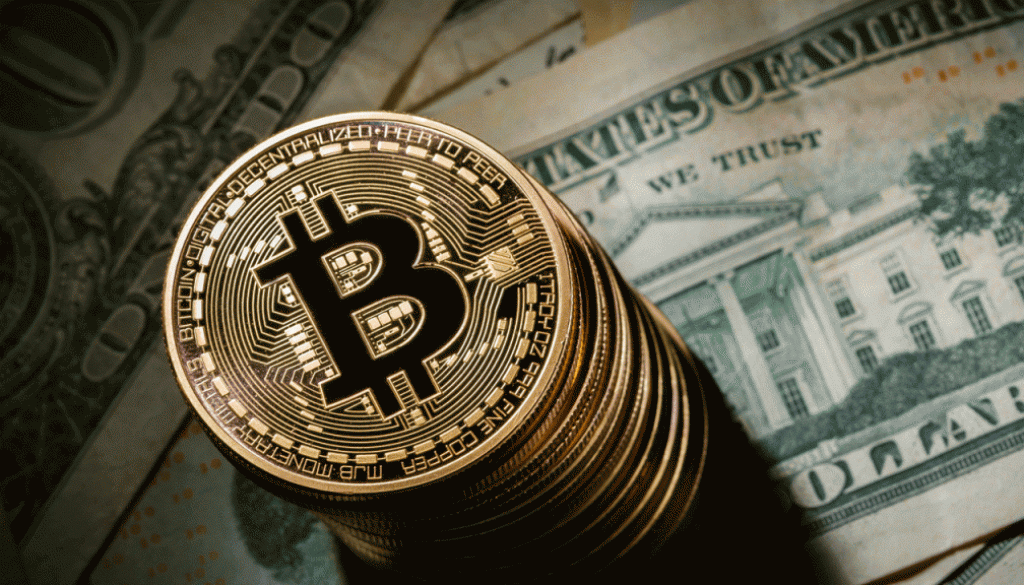Should You Invest In Bitcoins? Here Are The Top Reasons For And Against

The world’s first example of a decentralized, encrypted and distributed currency – Bitcoin – reached an important milestone this week when its price rose above $10,000 for the first time.
This makes news headlines, which go on to make more people aware of the existence of Bitcoin and the hundreds of other crypto-currencies which have since emerged. Many of them will undoubtedly be wondering if they have missed the boat. However, if you believe the many “Bitcoin evangelists” out there, Bitcoin is only just getting started. An investment, they say, even at this stage, could prove hugely profitable in years to come. And to be fair, they have been right so far.
Full disclosure from the outset – as I am not a financial advisor I will stop short of answering yes or no to the question I asked in the title. Instead I would like to give you information which I hope you will find useful when making your own decision.
What do experts say?
If you ask established authority figures within the financial system – for example Deutsche Bank chief strategist Ulrich Stephan – “should we invest in Bitcoin?” then the answer is generally an emphatic “no”. It’s high volatility, lack of obvious use other than as a vehicle for investment, and the bubble-like behaviour of its value are usually cited as flashing red “danger” signs. And logically, one would expect these people to know what they are talking about.
However, another line of thought goes that if you had taken their advice to give Bitcoin investments a wide berth seven years ago, they have literally cost you millions of dollars in missed opportunity. So why should you listen to them? The performance of Bitcoin as an investment speaks for itself – this year it has far outperformed any other asset or stock index you might have chosen to invest money in.
Essentially this is because blockchain offers the promise of at some stage making it possible to automate many of their core activities as financial “middle men”, through distributed, encrypted systems.
There are other reasons you might choose not to get involved, besides the opinions of potentially biased or self-interested experts. For a start, one very reasonable one would be environmental concerns. If you are an ethically-minded investor you will have to square the apparently huge ecological cost of its energy consumption with your conscience.

Unique threats
Beyond that, you might just think it’s a bad bet due to the unique threats it faces. As a challenge to the sovereignty of national currencies, it’s long been predicted that governments could move to regulate or even outlaw Bitcoin or cryptocurrencies. Several already have, most prominently China which has imposed restrictions on banks and businesses, and several others including Ecuador, Kyrgyzstan and Bangladesh which have banned it outright.
As Bitcoin’s encrypted and distributed nature makes it very difficult (though not impossible) to police, attempts to control its use seem more likely to push it underground than kill it. The implications of this will vary vastly depending on where in the world you live, though, so it’s certainly a consideration.
And the inevitable arrival of quantum computing is sometimes cited as another existential threat to Bitcoin. In theory, computers many thousands or millions of times more powerful than we have today will have no difficulty in breaking the encryption which keeps Bitcoin (and all blockchains) fundamentally secured. In reality, experts sayquantum computers this powerful are at least a decade away. At this point it’s thought that quantum-safe blockchain technology will already be widely deployed. And of course, if quantum computers can break the advanced encryptions of Blockchains, then they should easily be able to break encryptions of traditional banking systems
Bubble?
The price of Bitcoin has increased because people have bought them. As hype has increased, and more people become aware of its potential to make them money, price goes up further. This has caused many commentators to predict that we are in a bubble and prices will crash back down to more realistic levels at some point.
This already happened in 2013 when many people bought Bitcoin as its price approached $1,000 for the first time. Shortly after, itcrashed to around $300 where it resolutely stayed for the following two years.
Of course, if investors have held onto the Bitcoin they bought back then, they are more than happy now, with the recovery and subsequent 900% increase in value. But if they had urgent need of their money before it recovered – to cover unemployment, basic necessities or medical bills, for example – they would have been forced to sell at potentially a much lower price than they bought, incurring losses.

Affordability
Which brings me nicely to what I feel is the gist of the question of whether or not it is wide to invest in Bitcoin at this point in time.
On top of that there are the unique threats to its very existence Bitcoin faces, some of which I outlined above. While in reality nothing is likely to wipe it from the face of the Earth overnight, there are a range of possible triggers which could quickly cause a large drop in the value of your investment.
If you haven’t invested more than you can afford to lose, none of that will be a problem. If you do decide to play the game, however, don’t be surprised to find the stakes quickly raising. If you had invested $1,000 in Bitcoin in 2011, you would have £36.7 million now. You might (if you are lucky) consider that you could afford to take a $1,000 hit for the sake of a gamble – but could you afford to take a $36 million one?
Bernard Marr is a best-selling author & keynote speaker on business, technology and big data. His new book is Data Strategy.

